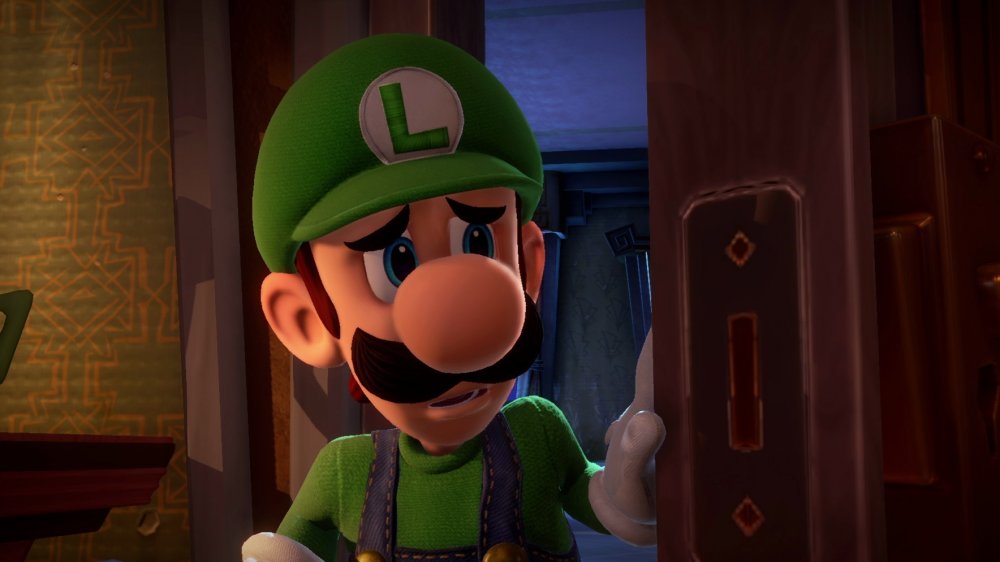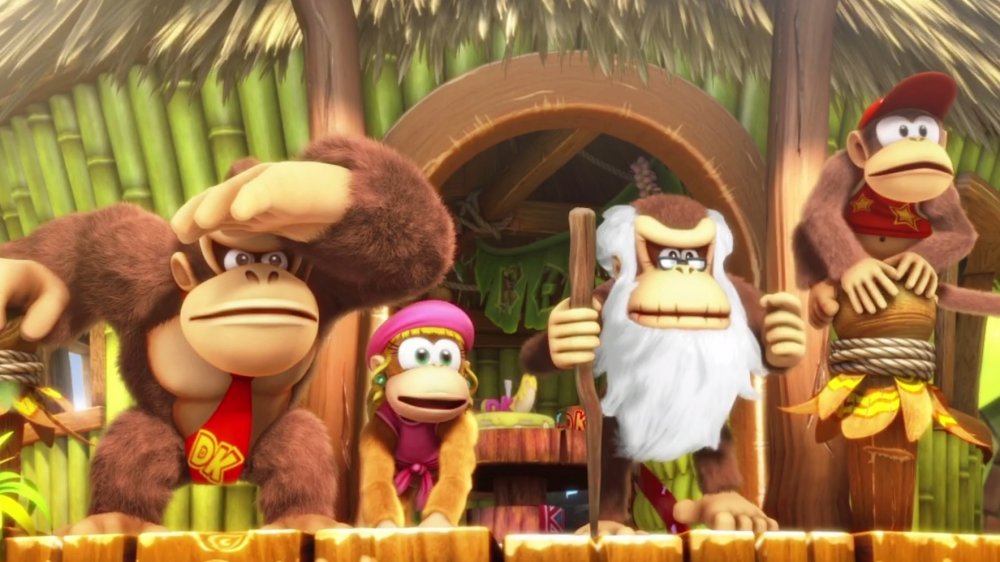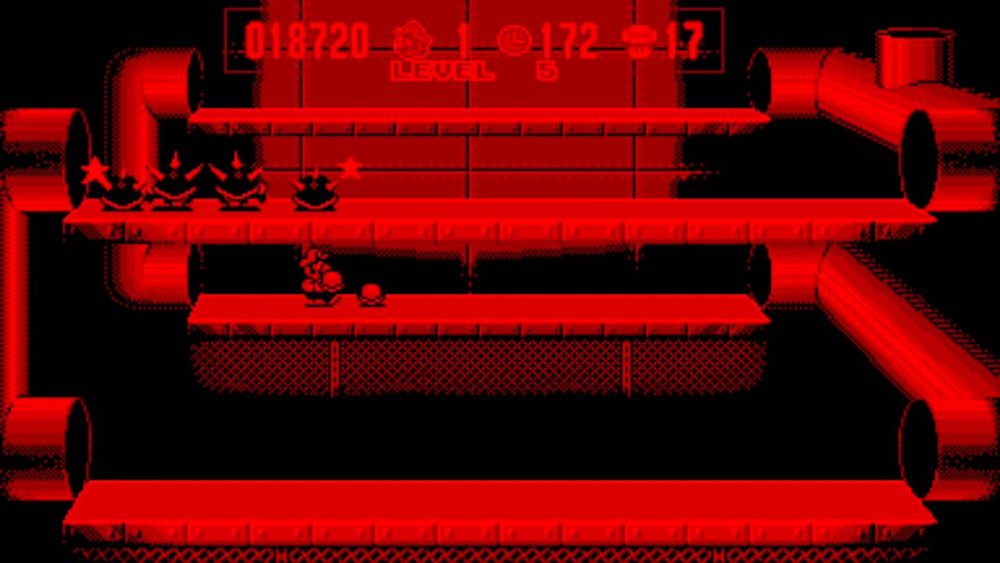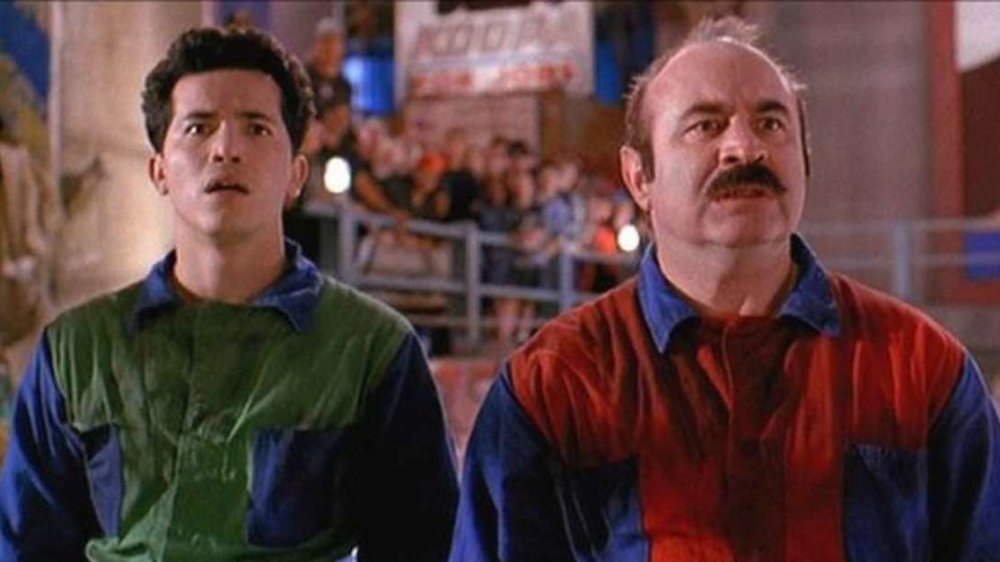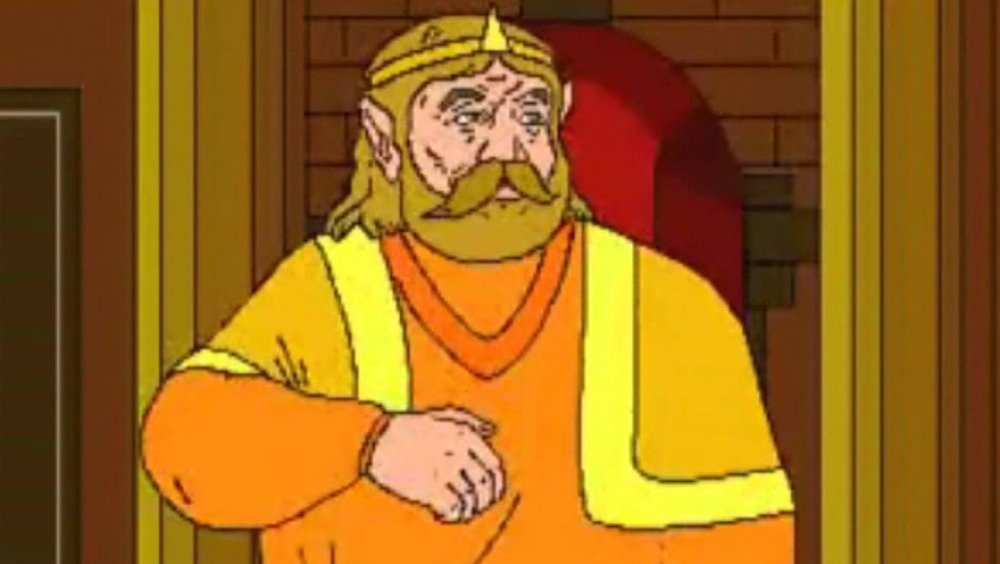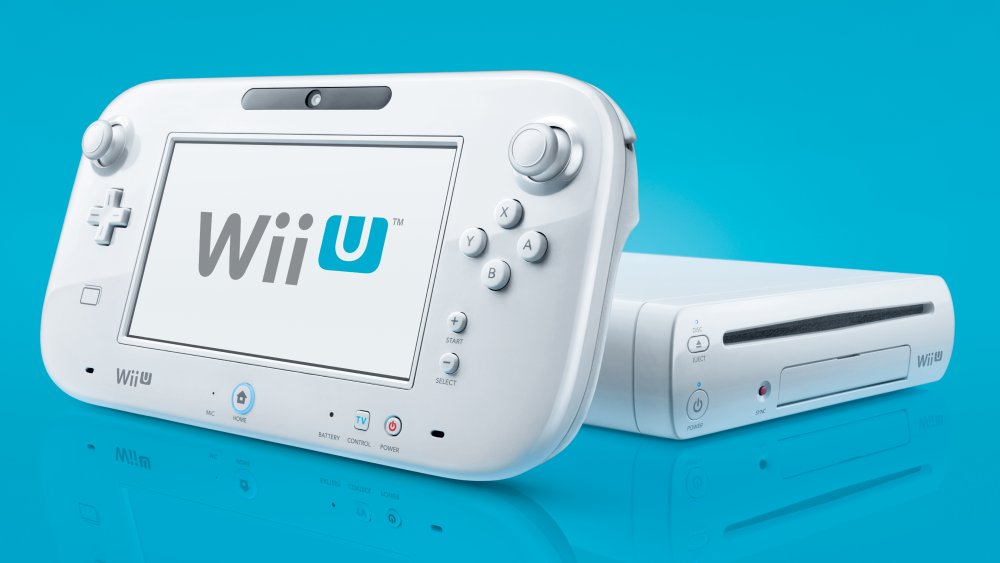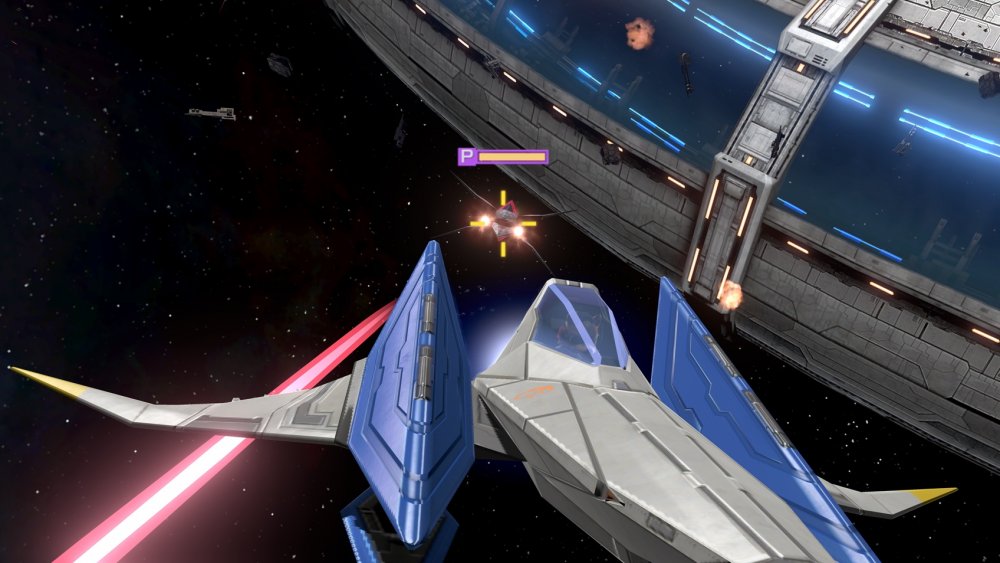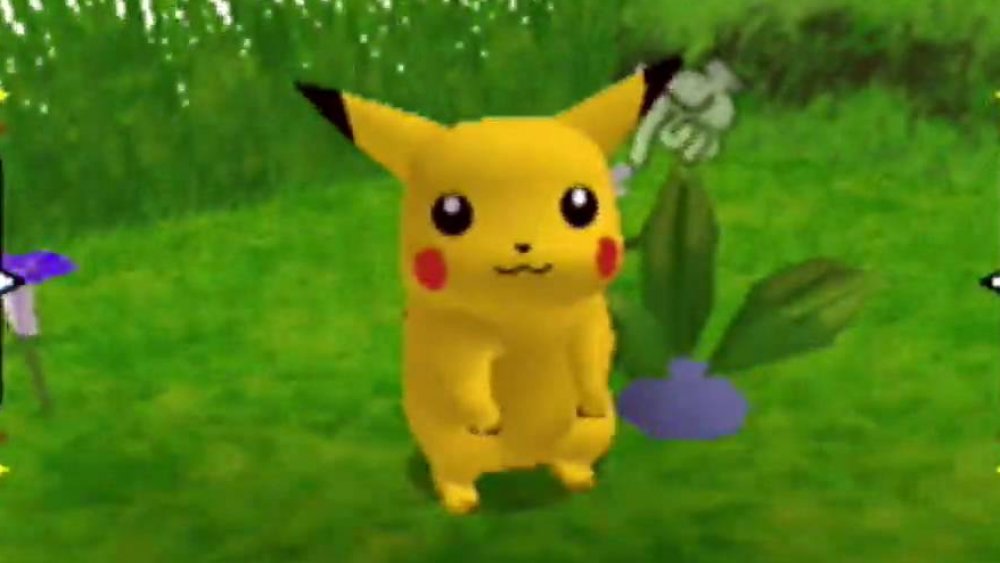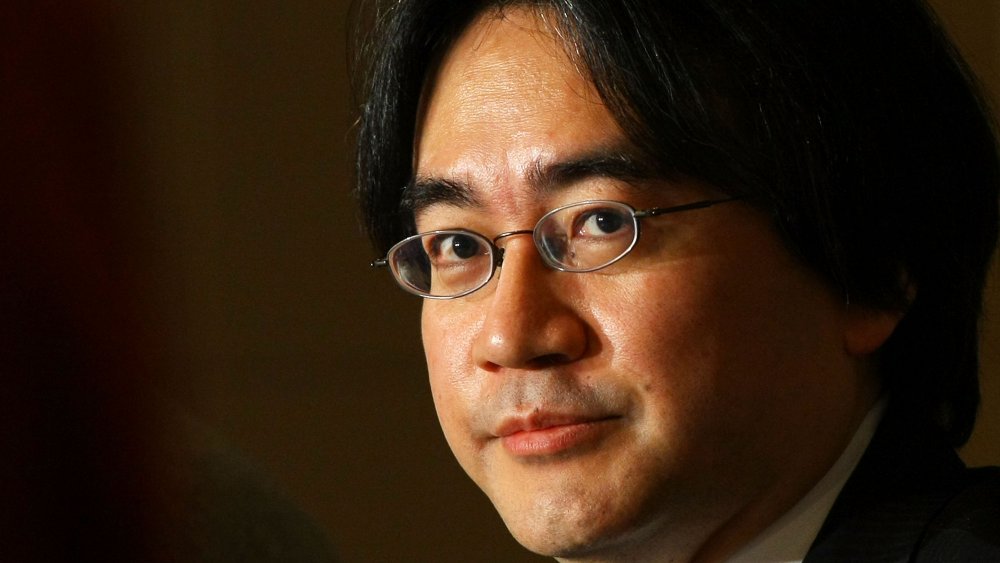Nintendo's Darkest Days
Now you're playing with power. Nintendo is largely responsible for bringing video gaming back from the brink of collapse, and there's a reason some people still call gaming "playing Nintendo," even though you're rocking some other shiny system. The big N has existed for well over one hundred years, though it was the company's foray into video gaming in the 1980s with the Famicom/Nintendo Entertainment System that made it a juggernaut.
However, things haven't always been rosy for the house that Mario built. Nintendo has plenty to hang its hat on over the decades of selling video games across the world. That said, the company has seen plenty of lows to counter the highs over the decades. There have been some questionable decisions and unforeseen events that have caused some serious issues for Nintendo.
It's dangerous to go alone! Take this. These are some of the events that have led to Nintendo's darkest days.
Letting Rare go
When most people think of Nintendo, they tend to think of the company's first party properties: Mario, Zelda and the like. However, there was a time when Nintendo had another major feather in its cap: Rare. Some of the most memorable games in Nintendo's stable came from the British developer, including Donkey Kong Country, Battletoads, Banjo-Kazooie, Goldeneye 007 and a whole lot more. Nintendo and Rare seemed like such a good fit for one another that Microsoft's purchase of the studio in 2002 shocked the gaming world.
It even shocked Rare's co-founder, Tim Stamper. Over a decade after Microsoft's purchase of the company, Stamper still wonders why Nintendo never officially brought Rare into its fold. When asked why Nintendo didn't purchase Rare, Stamper didn't mince words, saying "I've no idea why they didn't do that. I thought we were a good fit."
Microsoft's purchase of Rare means we never got true sequels to some of the greatest games of Nintendo's classic era. The acquisition also seemed to crush the developer, as its design philosophy never quite gelled with Microsoft. Viva Pinata and Grabbed by the Ghoulies are decent enough, but they are a pale substitute for Diddy Kong Racing.
The Virtual Boy
Virtual reality gaming is still waiting for its place in the spotlight, though the last few years have demonstrated its biggest push yet towards mainstream success. VR systems like the Oculus Quest, PlayStation VR and HTC Vive, along with software like Half-Life: Alyx help show that there are legs for virtual reality, even if things like cost and required space limit appeal.
It's hard to believe that Nintendo tried to jump into virtual reality when Bill Clinton was still in his first term as President of the United States.
Granted, the Virtual Boy was a far cry from today's virtual reality systems, but the headache-inducing "portable" system was an interesting glimpse into possible gaming futures. Though it was never truly produced on a massive scale, the Virtual Boy was one of the first true setbacks Nintendo had experienced since the debut of the NES, and helped to represent a waste of time and resources that could have easily been spent elsewhere for the Big N. Just imagine: if it had been a success, maybe every video game system would only display red and black.
Box office disaster
The internet makes it much harder to identify what is truly "mainstream," as it becomes so much easier to surround yourself with a specific fandom bubble that it can seem like everyone is talking about something. Before the era of social media, however, video games rarely broke truly into mainstream entertainment. That's why Super Mario Bros: The Motion Picture was such a major event.
It's also why the film's meltdown is so legendary.
Award-winning filmmakers bought the rights to the game, then made a film that had almost nothing to do with the story gamers knew. Major actors like Bob Hoskins and Dennis Hopper were cast, with both essentially laughing it off as a joke that they only did for a paycheck. Hopper went on an infamous, nearly hour long on-set tirade against the filmmakers, who dismissed the cast to lunch while it happened. Hopper used that lunch break to rant for another two hours. Hoskins and John Leguizamo, playing the title characters, passed whiskey back and forth between takes. The filmmakers never made a Hollywood film again. What was supposed to be Nintendo's next foray into entertainment wound up as a total disaster.
The Zelda CD-I games
It's been mentioned before how Nintendo essentially created its biggest rival in the Sony PlayStation, but almost equally as interesting is how it responded to this misstep. Once the deal with Sony fell through, Nintendo still planned on collaborating for a disc drive, and used its first-party licenses as a bargaining chip. This deal wound up giving us some of the worst "Nintendo" games ever made: the Zelda CD-I trilogy.
Link: The Faces of Evil, Zelda: The Wand of Gamelon and Zelda's Adventure may be known mostly for their memes at this point, but these games (and Hotel Mario) are one of the only occasions where these first-party Nintendo characters appeared on a non-Nintendo system in the Philips CD-I.
These games were not created by Nintendo, but were seemingly put together slap-dash on a system with outdated hardware, by a company with no real idea how to make a quality game. They are notoriously bad, with touchy controls, glitchy animation and terrible cutscenes. Nintendo is infamously protective of its intellectual property, and the CD-I games help showcase what can happen if it is not.
Miscalculations with the Wii U
In 2012, Nintendo was riding high. After losing ground to both Microsoft and Sony in prior generations, it came roaring back with one of the best-selling consoles of all time: the Wii. The Wii was a huge hit with casual gaming audiences, leaving many to wonder what Nintendo's next innovative console would look like.
That's why the Wii U left so many scratching their heads.
The name itself was misleading – was it an entirely new system? An add-on? A peripheral? Would it feature similar motion controls? Could it play your old Wii games?
The Wii U wound up being the worst selling console Nintendo ever produced, and a huge part of that was the confusion over what the system actually was. In an interview discussing the NX (which later became the Switch), Nintendo's President Reggie Fils-Aime acknowledged the failures to properly market the Wii U and promised the company would not repeat those mistakes. Considering the sales numbers of the Switch, it appears he was not blowing smoke.
Mishandling Star Fox
Nintendo's most well-known first party properties seemingly always have a new game on the horizon – you never have to wait more than a few years before Mario or Link appear in a new game. However, Nintendo has plenty of first-party franchises outside of its major, mainstream hits, and few have been handled quite like Star Fox.
The original Star Fox might not look like much today, but it was a revolutionary title when it released on the SNES. Star Fox 64 improved on the formula, helping to bring the story to life and offering much smoother animation for its dogfights. Surely the next title would improve the formula even more?
Well... not really. Star Fox Adventures released for the GameCube five years later. It's a fine game, but a third person adventure game is hardly the next Star Fox that fans wanted. A few other spin-offs came and went, but Star Fox Zero was an ill-conceived reboot for an ill-conceived system. Star Fox 2, an unfinished SNES sequel, was eventually released as an exclusive on the SNES Classic. Otherwise, things have unfortunately been radio silent for one of Nintendo's most well-loved franchises.
The ending of Hey You, Pikachu
It feels a little like cheating to pick on a single game (that honestly not that many people probably played), but Hey You, Pikachu needs to be called out when discussing Nintendo's darkest days. This N64 title was a virtual pet game, where the player used a microphone to communicate with their digital Pikachu. The little electric mouse had an expansive vocabulary, and you could slowly bond with it by discovering new phrases it recognized.
For 365 in-game days. Then... well...
You know that scene in movies and television where a character has to convince a pet to run away? Scare it off for its own good? Game of Thrones did it. The Fox and the Hound did it. Harry and the Hendersons did it. It's a trope known as "Shoo the Dog," and Hey You, Pikachu made players do it. It was awful.
The entire game had players bond with this adorable critter, and then tell Pikachu "Goodbye" over and over until it thought they no longer loved it and returned to the wild. Sure, it came back if players stayed through the credits, but c'mon Nintendo! Why make people do something so heart-wrenching?
The death of Satoru Iwata
Obviously, Nintendo has its share of real world titans to go alongside its wildly popular game characters. Though he might not have the name recognition of Shigeru Miyamoto, Nintendo would not be what it is today without the legendary Satoru Iwata. His untimely death at the age of 55 was a terrible tragedy as well as a huge blow to the company.
Iwata started out as a programmer in the 1980s, and gradually worked his way up to President of Nintendo in the year 2002. He oversaw the release of two of Nintendo's biggest systems, the 3DS and Nintendo Wii, and helped broaden the company's horizons to even more mainstream success. Iwata's influence on Nintendo was massive, and his policies and ideas are still helping the company find success today.
Iwata was diagnosed with cancer in 2014, but had received surgery and returned to work not long after. Sadly, the cancer returned and Iwata passed away at the age of 55 in 2015. He was awarded several lifetime achievement awards after his passing, and he is still missed and remembered to this day. On top of that, it seems he was even given a tribute of sorts in The Legend of Zelda: Breath of the Wild.

